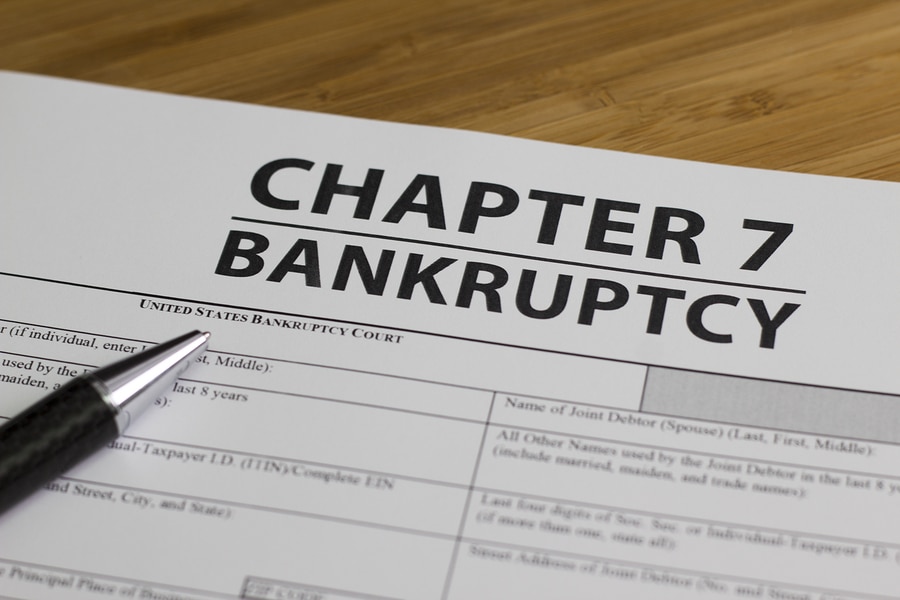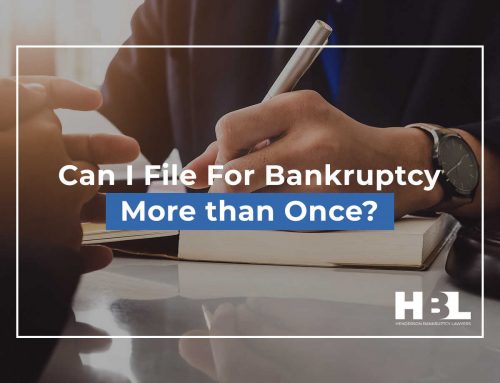Leading Cause of Bankruptcy in Nevada: Medical Debt

Additional Information about Medical Debt and Filing Bankruptcy in Nevada
Medical bills cause about 530,000 personal bankruptcies each year. Other top factors contributing to bankruptcy filings are divorce, foreclosure, having too expensive of a lifestyle, student loans, and financially assisting family members.
Incurring medical debt often means incurring other types of debt at the same time. For example, you may need to take unpaid time off work, causing you to spend any savings you have and use credit cards and personal loans to make due in the meantime. Almost all personal bankruptcies are filed as a Chapter 7 or Chapter 13. Each Chapter has its own requirements, benefits, and drawbacks.
Chapter 7 Bankruptcy and Medical Debt in Nevada.
Chapter 7 Bankruptcy liquidates many types of debts without the debtor being required to repay them. It will wipe out medical debt, along with credit card bills, personal loans, deficiency balances, and more. An attorney should be able to tell you which of your debts will be dischargeable in Chapter 7 in a consultation. Each case will be assigned a trustee, who will oversee the bankruptcy.
With how staggering medical costs can be, Chapter 7 provides immense benefits. These benefits can’t be available to everyone, so a few factors can disqualify individuals from filing. The first of these is income eligibility. One way to qualify for Chapter 7 is by making less than the median income level. This number will vary by state and by family size. If someone seeking to file Chapter 7 makes above this level, they will need to prove that Chapter 7 should be available to them through the Means Test. The Means Test will combine all earners’ income, find the average monthly income over the last six months, and deduct necessary (defined by the Court) expenses. The number reached is referred to as disposable monthly income. When disposable monthly income is negative or falls below a certain amount, that individual will qualify for Chapter 7.

Lastly, there are waiting periods between bankruptcy filings that can prevent an individual from qualifying for Chapter 7. You must wait 8 years to file Chapter 7 after a successfully discharged Chapter 7, and 6 years from a successfully discharged Chapter 13.
Chapter 7 filers should be aware that any of the doctors they file bankruptcy on may choose to refuse them service in the future. With the exception of emergency providers, a doctor may choose to only continue seeing you if you pay off their bill despite it being legally discharged in the bankruptcy.
Chapter 13 Bankruptcy and Medical Debt in Nevada.
Chapter 13 reorganizes and reschedules debts into a payment plan tailored to the filer’s budget and types of debts. For filers who make above the median income, the payment plan will last 5 years. For those who make below that amount, the plan will last 3 years. Some debts will be paid in full in the plan, while others may only receive a portion of the original debt. Medical debts fall behind debts like arrearages, student loans, and vehicle loans in a Chapter 13- therefore, you may only end up paying a portion of your medical debts. Your doctor will continue providing treatment if you are paying your bills to them in a payment plan.
You may have assets that exceed the Chapter 7 exemptions in a Chapter 13. However, vehicle loans must be paid in full in the plan. Some jurisdictions include mortgage payments in the plan, but they won’t need to pay the full amount during the bankruptcy. There is no maximum income in a Chapter 13, but you must have enough income to pay mandatory debts through the plan. There are also maximums for how much debt you can discharge in Chapter 13. Filers may have $419,275 in unsecured debts and $1,257,850 in secured debts. Repeat filers must wait 4 years after a discharged Chapter 7 to file Chapter 13, and two years between Chapter 13s.
Relief for Medical Debt in Nevada
If you still have questions about how bankruptcy can help you with your medical debt, our office is here to help. Consultations are free of charged, and are offered telephonically for your convenience and privacy. Find out which chapters you qualify for, which debts will be discharged, and how else bankruptcy can help you today by calling for your free consultation.



